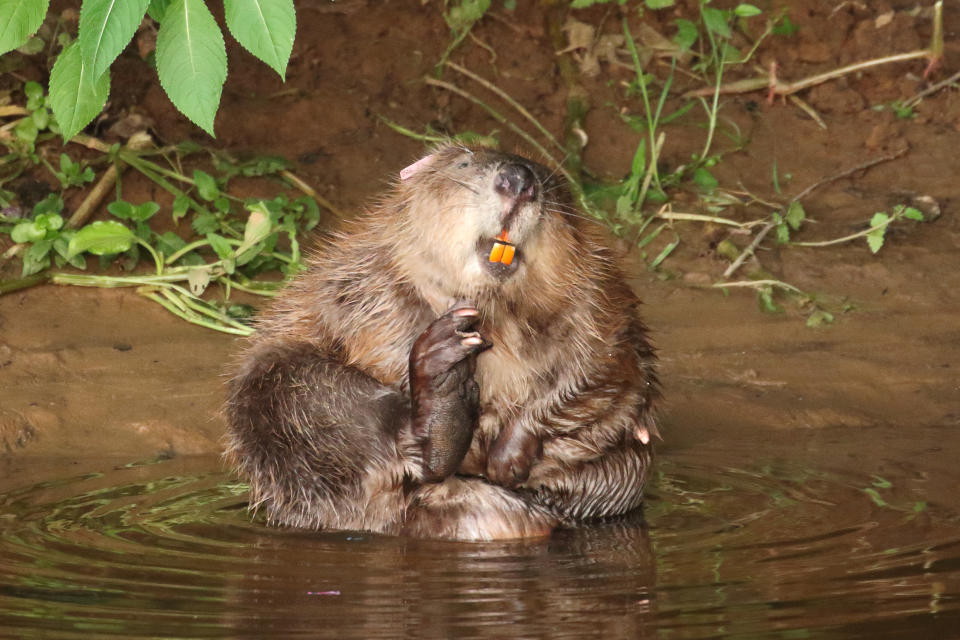England's first wild beavers for 400 years get permission to stay
LONDON — After a 400-year wait, sharp teeth are once again gnawing through trees and building dams on English waterways.
Hunted to extinction in the 16th century, wild beavers are making a comeback after a five-year study demonstrated their positive impact on the environment.
Local landowners had expressed concern that they could spread disease — but the U.K. government announced Thursday that the trial had been deemed a success and the beavers can stay.
The rodents are believed to have been living on the River Otter in Devon, southwest England, since 2008 although who released them and why remains a mystery. The name of the river is a coincidence — no otters are known to live there.
“The River Otter beavers reintroduction trial has proved highly successful — improving biodiversity and water quality, mitigating flooding and making the local landscape more resilient to change,” said Rebecca Pow, U.K. environment minister.
After a video emerged in 2014 showing that the beavers had successfully bred, the U.K. government planned to remove them, but an alternative plan to study their impact was devised instead.
The research from the University of Exeter — published in February this year — showed that beavers act as natural "engineers," improving the environment in ways that far outweigh the cost to a small number of landowners who opposed them.
By building dams and lodges, the beavers reduced the flooding risk to a village downstream — a heightened concern in western England after a spate of severe floods in recent years, which have been linked to climate change.
The beavers also helped improve water quality and created new wetlands that could lead to a biodiversity boom along the river.
Download the NBC News app for breaking news and politics
Paving the way for the possibility of further colonies of beavers across the country, Pow added that the government is “firmly committed to providing opportunities to reintroduce formerly native species, such as beavers, where the benefits for the environment, people and the economy are clear.”
Peter Burgess, Director of Conservation at Devon Wildlife Trust — one of the organizations involved in the trial — called the decision “ground-breaking.”
“Beavers are nature’s engineers and have the unrivaled ability to breath new life into our rivers. Their benefits will be felt throughout our countryside, by wildlife and people,” he said.

Some landowners opposed the trial over fears that farming could be harmed by beavers altering the watercourse. The U.K. government pledged to reward rural landowners with a new rural subsidy scheme that will replace its European Union equivalent after the Brexit transition period concludes in January.
Eurasian Beavers are Europe’s largest native rodents but were hunted to extinction in the U.K. 400 years ago after being prized for their fur and castoreum, an oil secreted from their tail that is used in perfumes and was thought to contain medicinal properties.
Beavers were also successfully reintroduced to Scotland in 2016 after a successful trial there marking the first time a previously extinct native species had been reintroduced to the country.

